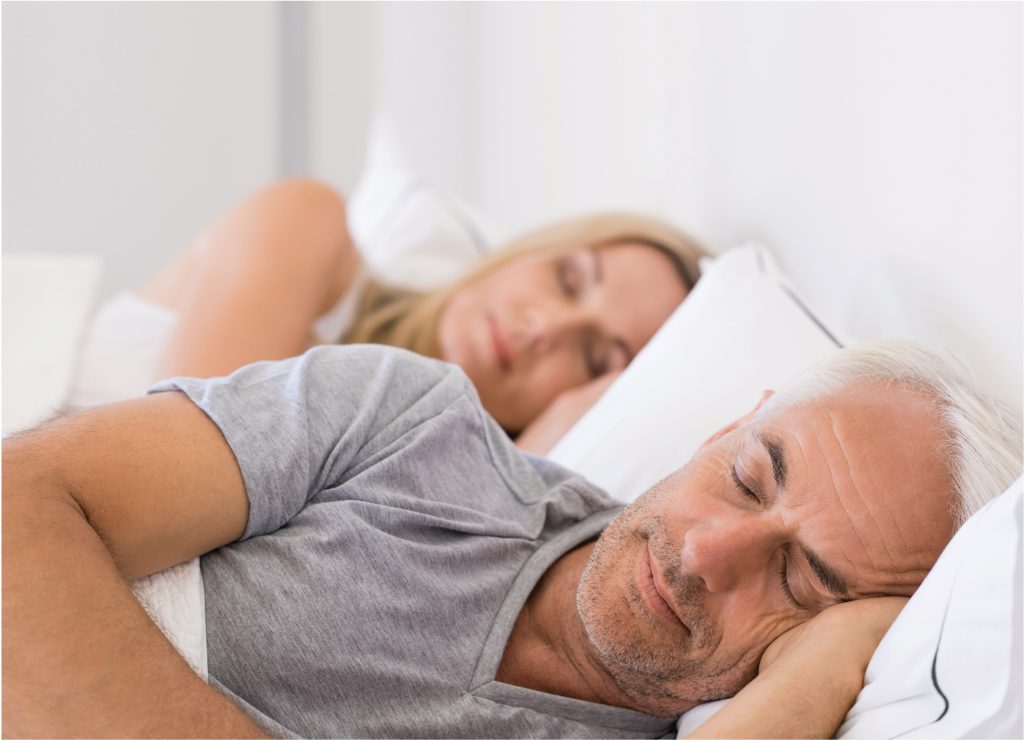Sleep is an essential component of maintaining a good quality of life.
While you’re catching your Z’s, your body and mind are hard at work repairing tissues, fighting off infections, and even processing and forming memories. You should aim for about seven or eight hours of sleep each night, and it’s even more important to wake up feeling rested and refreshed.
“Quality sleep is very much in the eye of the beholder,” says Andrew Stiehm, a pulmonary and sleep medicine physician with Allina Health. “High quality sleep means that when you wake up, you feel rested. If you feel like your sleep is not satisfactory to you, then you’re not getting quality sleep.”
Getting older doesn’t mean you have to settle for fewer hours of quality sleep. If you’re spending a lot of time tossing and turning at night, it could be that you just need to make a few adjustments.
Find your natural bedtime
As you age, your body experiences natural changes to its sleep patterns.
“The first change we see is called advancing of the sleep phase, which means the natural bedtime starts to shift a little bit earlier,” Dr. Stiehm says. “For a 30-year-old, the natural bedtime might be between 10 p.m. and midnight. For a 65-year-old, it’s maybe between 8 p.m. and 10 p.m.”
Typically, your natural bedtime is whenever you feel tired. But if you’re in bed counting sheep for a while, Stiehm recommends getting back up and doing something relaxing until you feel like you could doze off.
“If you’ve gone to bed and haven’t fallen asleep within 20 minutes, that’s your body telling you it isn’t ready yet,” Dr. Stiehm says. “Go to bed when you feel like it’s time to go to bed — not necessarily because of the time on the clock, or because you feel like you need to go to bed at the same time as your partner.”
Understand your body
As you grow older, you may experience a decrease in sleep efficiency.
“This is a jargony way of saying how much of your time in bed is actually spent sleeping,” Dr. Stiehm says. “An individual who’s very efficient will sleep throughout most of their time in bed. But someone who’s inefficient will spend more time awake throughout the night.”
If you fall into the inefficient category, perhaps you have medical issues that keep you awake, like having to urinate more often, or needing to reposition to ease back pain. These aren’t always a cause for concern. But if you feel like they’re regularly hindering your ability to rest, it might be worth bringing up to your doctor at your annual wellness visit.
If you do feel unrested, the biggest culprit is that you’re likely not getting enough sleep. This could be due to behavioral reasons, such as choosing to take part in activities or hobbies in the evening, instead of sleeping.
“You really want to address the reason you feel unrested,” Dr. Stiehm says. “If the issue is that you’re getting enough sleep, but you still feel tired, that usually requires a medical evaluation. It could be due to an underlying medical condition or medication side effects.”
Build a routine
Above all else, it’s important to let your body know when it’s time to wind down in the evening.
“Stability is important,” Dr. Stiehm says. “Your body needs to know what time is bedtime, and your body needs to have a constant routine before bedtime.”
Your sleeping environment should be dark, quiet and set at a comfortable temperature.
Even beyond a regular bedtime, it’s also important to be consistent in your routine that precedes sleep.
Try to avoid light sources about an hour or two before bedtime. This means turning off the TV and putting away your cell phone. Light sources can affect your circadian rhythm, which can affect your body’s ability to snooze.
A relaxing hobby such as light reading, yoga or meditation can be great ways to wind down and send a signal to your body that you’re getting ready to sleep. Whatever your routine, Steihm encourages consistency.
“Routine, routine, routine,” Dr. Stiehm says. “Having a stable routine is one of the most important steps to getting a good night’s rest.”


